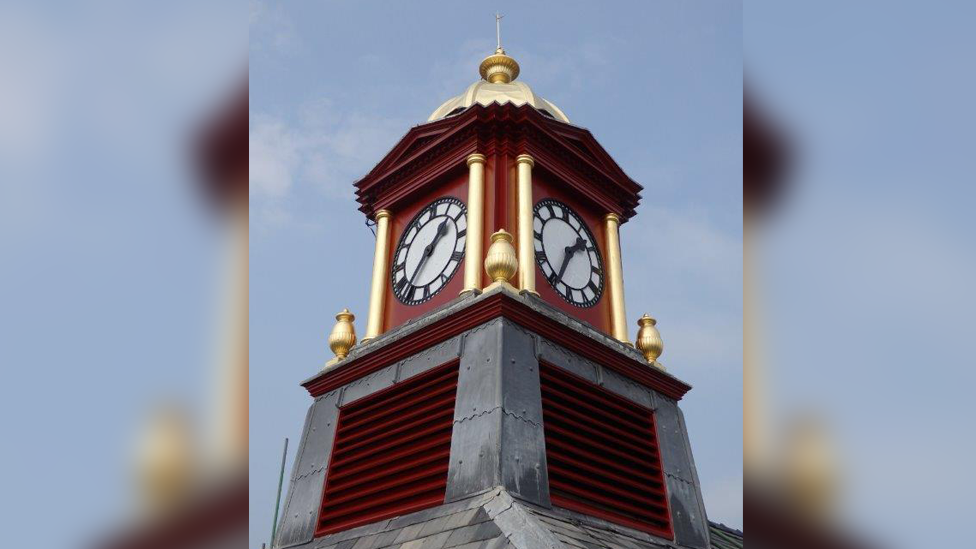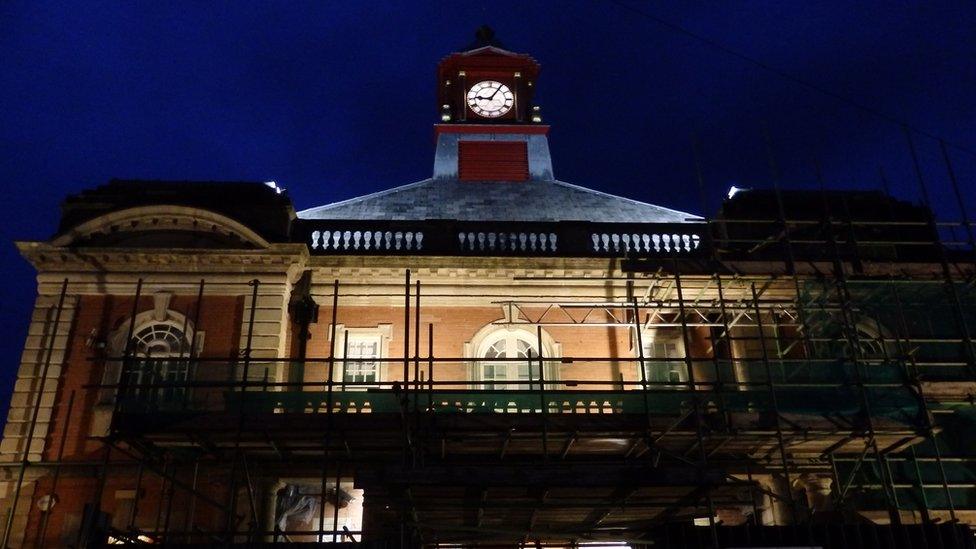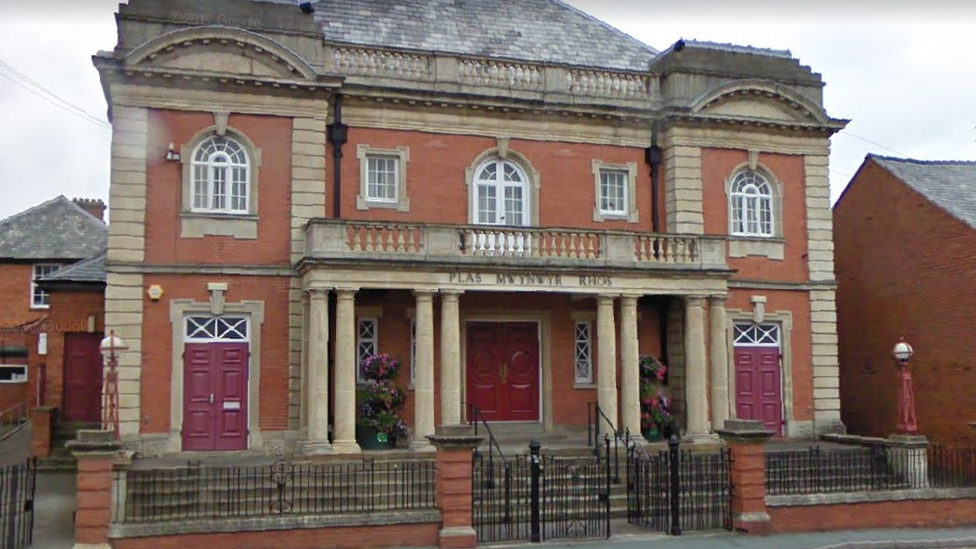Rhosllanerchrugog's Stiwt clock chimes after decade of silence
- Published

The clock was used to wake up miners ahead of their shifts
Dozens of people came to hear the clock of a former mining institute chime for the first time in over a decade.
The Stiwt, in Rhosllanerchrugog near Wrexham, was built for miners in 1926 and its bells used to wake colliers ahead of their shift at the Hafod mine.
After the mine closed, the building later became a theatre.
The clock stopped chiming around 2007, but has rung again after more than £100,000 was raised to restore it. The clock was turned on by schoolchildren.
Before the Stiwt was built, it is thought that a local man would knock on the colliers' doors to wake them up.

The restoration encompassed the whole of the front of the building, not just the clock
Once the institute opened, the clock did that job instead and carried on chiming when Hafod mine closed in 1968.
Rhys Davies, who manages the centre, said he did not know why the clock stopped chiming, but last year the decision was taken to restore it.
"It was the 50th anniversary of the closure of Hafod, and the mine is the only reason the Stiwt is here," Mr Davies said.
The fundraising appeal sought £10,000 after the local community council offered £2,500 - but the fund managed to raise over £22,000.
"That changed everything for us, in a way," said Mr Davies. "We had a lot more money than we expected."
The fund increased further with a £50,000 contribution from Cadw, the Welsh Government's historic environment service, and £25,000 from Wrexham council.
This meant that the restoration could encompass the whole of the front of the building, not just the clock.
The clock chimed again at 14:00 BST and Eirian Buck, from nearby Ponciau, explained why she was there to witness it.
"Because my whole family were colliers, the Stiwt means everything to me," she said.
"And when I heard the clock chiming again I was almost in tears."
- Published11 December 2018

- Published5 December 2018
